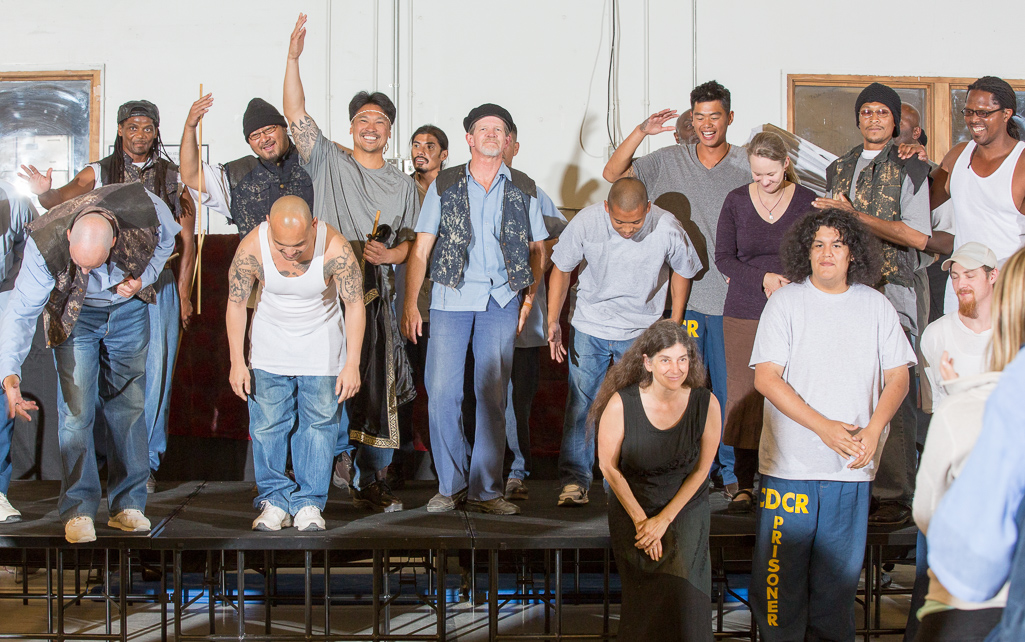Lesley Schisgall Currier ’84 Brings Shakespeare Into California Prisons
Since discovering her passion for performing as a child, Lesley Schisgall Currier ’84 has shared the stage with people from all walks of life — kids, fellow Princeton students, professional actors, and for the last 13 years, prison inmates.
Currier and her colleagues from the Marin Shakespeare Company have been traveling to prisons in the San Francisco Bay Area to teach Shakespeare to inmates since 2003. What started as a single class with just three students has expanded to include five prisons and youth in the criminal-justice system. Since 2008, Marin has produced 15 in-prison performances of Shakespeare plays and this year started its first theater troupe for formerly incarcerated actors who want to continue performing after leaving prison.
Currier co-founded the Marin Shakespeare Company 26 years ago with her husband, Robert, in an effort to bring professional Shakespeare productions and drama education to the Bay Area. She said the decision to start working in prisons was an easy one, from both a geographic and educational standpoint — not only is Marin’s outdoor amphitheater located about 5 miles away from San Quentin State Prison (the first prison to participate in the program), but the themes within Shakespeare’s plays are a perfect entry-point into theater for the inmates.
“I really believe that the ideas and the range of characters in Shakespeare are universal, powerful, and unparalleled by any other writer,” says Currier. “The inmates get to play heroes and villains, kings and beggars. And there are themes in all of these plays that we explore deeply and relate to our own personal lives that I think is powerful.”
Currier and has directed and acted in many of the prison productions, which have included classic Shakespeare works such as Hamlet, Romeo and Juliet, and As You Like It. She enjoys working in the prisons, where she and the cast often perform for an audience full of inmates who have never read Shakespeare.
“We don’t have to worry about being clever or bringing our own take to the play — it’s really about just discovering the play and telling the story clearly and in a vibrant way,” she said. “I love that most of the men come fresh to the material. They don’t know what any character’s supposed to be like, they just read the words and create the characters themselves.”
The state of California decided to invest in rehabilitation through the arts a couple of years ago, and the Marin Shakespeare Company was one of the first groups to receive a grant, which helped propel the expansion of its programming into other prisons. Currier said the in-class theater games and exercises, which are inspired by drama therapy, provide a kind of healing that can’t always be achieved by talking to a therapist.
“You get it into your body, not just your head,” Currier said. “It’s a somatic healing that happens when we practice what it feels like to be different, to be forgiving, to feel loving and supportive. And once you feel that in your body it releases things you didn’t realize you were holding onto sometimes.”
Currier is now in the midst of the Marin Shakespeare Company’s performances of Othello, which opened Aug. 26 and runs nearly every day through Sept. 25. She is particularly excited about this production, which starts former San Quentin inmate Dameion Brown as Othello.
“Many of the men I worked with behind bars have a lot to offer to society,” Currier said. “They could be fathers, husbands, artists, thinkers, and mentors if we allowed them to come out of prison and do that … and Dameion is a shining example of this. He’s showing that you can do anything you want in life, you can step out of the box.”













No responses yet